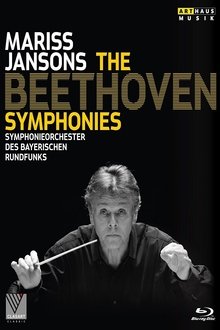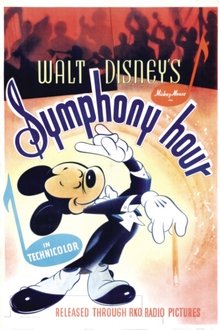Of Love, Death, and Beyond: Exploring Mahler's Resurrection Symphony (2011)
“What is this life—and this death?” Gustav Mahler famously asked when composing his second symphony. Does consciousness “continue” on a higher cosmic level, he wondered, or is it “only an empty dream?” Narrated by renowned baritone Thomas Hampson, this film explores the musical, biographical, and philosophical background of the monumental work. Viewers are treated to beautifully produced historical reenactments as well as interviews with many of the world’s most respected Mahler scholars and biographers, including Henry-Louis de La Grange, Donald Mitchell, Morten Solvik, and others. Philosopher Martha Nussbaum and theologians Catherine Keller and Neil Gillman also add their insights. Woven throughout is a critically acclaimed performance of the symphony featuring members of the New York Philharmonic and the Philadelphia Orchestra under the direction of maestro Neeme Järvi.
Related Movies

Paul Oscar with the Icelandic Symphony Orchestra (2020)
Icelandic pop-star Paul Oscar joins with the Icelandic Symphony Orchestra to give a performance during Covid19 lookdowns.
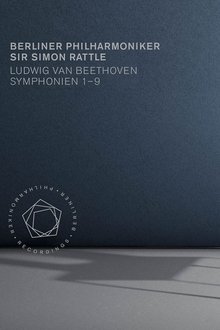
Beethoven - Symphonies 1-9 (Berliner Philharmoniker, Sir Simon Rattle) (2016)
Recordings of all the Beethoven symphonies with their chief conductor are always a milestone in the artistic work of the Berliner Philharmoniker. So it was with Herbert von Karajan and Claudio Abbado, and expectations are correspondingly high for this cycle conducted by Sir Simon Rattle. Where does the special status of these symphonies come from? Simon Rattle has an explanation: “One of the things Beethoven does is to give you a mirror into yourself – where you are now as a musician.” In fact, this music contains such a wealth of extreme emotions and brilliant compositional ideas that reveal the qualities of the orchestra and its conductor as if under a magnifying glass.

Gustav Mahler: Symphony No. 2 Resurrection (2007)
In 2005, the Staatsoper Berlin and its orchestra, the Staatskapelle Berlin under musical director Daniel Barenboim, celebrated a series of events to celebrate the 80th birthday of French conductor and composer Pierre Boulez. Artistically associated for decades with Barenboim and Berlin, Pierre Boulez is one of today's most distinguished composers and conductors. As part of the celebration, Boulez conducted a performance of Mahler's "Resurrection" Symphony at the Berlin Philharmonie. With his uncompromising approach to the score, Pierre Boulez's Mahler readings have long fascinated critics and audiences alike. Boulez eschews the romanticized readings common in performance tradition and, instead, reveals the real joy and terror in Mahler's large-scale symphonies.

Bernstein in Vienna: Beethoven, The Ninth Symphony (1970)
To play Beethoven's music is to give oneself over completely to the child-spirit which lived in that grim, awkward, violent man. Without that utter submission it is impossible to play the Adagio of the Ninth. Or, Heaven knows, the first movement. And the Finale? Most of all! It is simply unplayable unless we go all the way with him, as he cries out "Brüder!" - Leonard Bernstein

Leonard Bernstein: Chichester Psalms Symphony No's 1 & 2 (1977)
Leonard Bernstein performs three of his own compositions with the Israel Philharmonic Orchestra at the Philharmonic in Berlin.
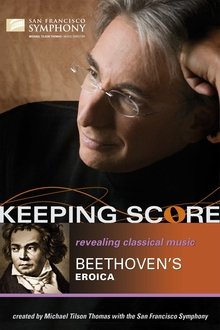
Keeping Score: Beethoven's Eroica (2006)
Beethoven spent three years composing the Eroica, an intimate journal of his emotional crises and his dramatic emergence as an original master. Michael Tilson Thomas and the musicians of the San Francisco Symphony help you make sense of this voyage into life as it really is.

Dare to Drum (2015)
This film speaks to the uniquely inherent traits that drummers and percussionists possess as natural explorers of music and sound, and how this particular story explores the challenge of translating foreign voices of percussive expression into the dialect of a Western classical orchestra setting. Five accomplished percussionists, Drum, and a rock star composer, Stewart Copeland, come together with the Dallas Symphony Orchestra to create a groundbreaking work.
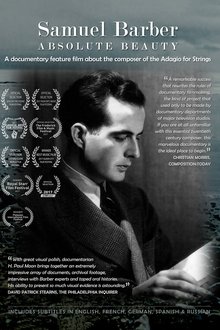
Samuel Barber: Absolute Beauty (2017)
Known for his mournful "Adagio for Strings," Samuel Barber was never quite fashionable. This acclaimed film is a probing exploration of his music and melancholia. Performance, oral history, musicology, and biography combine to explore the life and music of one of America’s greatest composers. Features Thomas Hampson, Leonard Slatkin, Marin Alsop and many more of the world's leading experts on Barber's music, with tributes from composers Leonard Bernstein, Aaron Copland, Virgil Thomson and William Schuman. The film was broadcast on PBS, and screened at nine film festivals internationally, with three best-of awards. It was named a Recording of the Year 2017 by MusicWeb International.

Beethoven Symphony No. 9 (1977)
Karajan's very best video Beethoven 9th Symphony, recorded December 31, 1977. The Quartet of vocal soloists and Chorus in IV are superb. This is much better than Karajan's 1968 Berlin Philharmonic Beethoven 9 video (DG), filmed in the Philharmonie with no live audience present.

Mahler: Symphonies 1-7 (2011)
The unforgettable performances by Claudio Abbado and the LUCERNE FESTIVAL ORCHESTRA of Mahler’s Symphonies Nos. 1−7 are newly celebrated in a set which showcases their exceptional quality – both audiovisual and musical. Claudio Abbado has set new standards in the interpretation of Gustav Mahler’s works; he and his exclusive ensemble of hand-picked musicians held audiences spellbound in these concerts. REPERTOIRE: Mahler: Symphonies Nos. 1-7; Five lieder based on poems by Friedrich Rückert; Sergei Prokofiev: Piano Concerto No. 3 in C Major, Op. 26

Brahms: Complete Symphonies (2014)
After the great success of his Beethoven cycle, Christian Thielemann now turns with his new orchestra, the Staatskapelle Dresden, to the symphonic work of Johannes Brahms. Bonus features include: an extensive 52 minute interview with Christian Thielemann on Brahms' Symphonies and provides and in-depth look into his interpretation of Brahms.

Beethoven: Symphony No. 7 (2021)
In the ancient theater of Delphi, against the backdrop of the ruins of the Temple of Apollo, musicAeterna, conducted by Teodor Currentzis, performs Ludwig van Beethoven’s 7th Symphony, in conjunction with a new choreography by Sasha Waltz and her company.

The Little Drummer Boy: An Essay on Mahler by Leonard Bernstein (1985)
This television essay from 1985 was written by Leonard Bernstein to commemorate the 125th anniversary of Gustav Mahler's birth. Recorded in Israel, Vienna and later in London, it is punctuated by biographical interludes and illustrated by musical examples drawn from the cycle of Mahler's works recorded by Bernstein. Bernstein talks, plays and conducts various orchestras (Israel Philharmonic Orchestra, London Philharmonic Orchestra, Wiener Philharmoniker) and soloists (Janet Baker, Christa Ludwig, Edith Mathis, Lucia Popp, Walton Groenroos) in performances spanning 17 years. Leonard Bernstein also examines the roots of Gustav Mahler's inspiration. The programme also features music from the nine symphonies, 'The Song of the Earth' and the 'Wunderhorn Cycle'.


